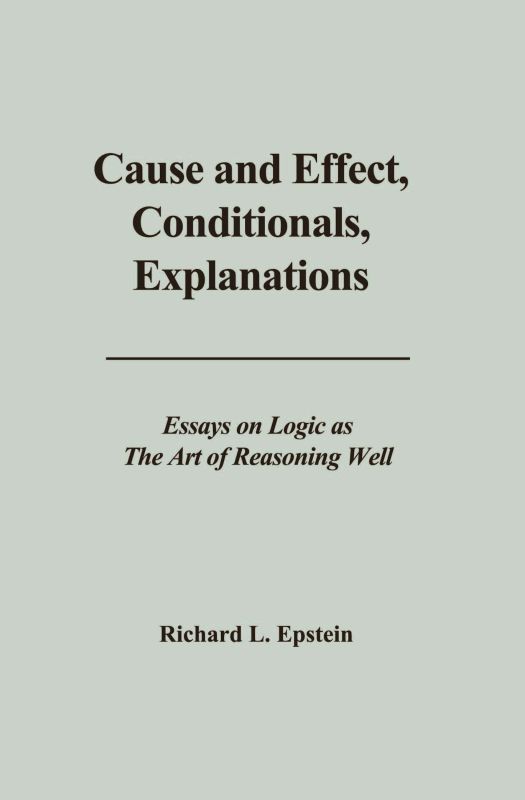Richard L. Epstein
Background: Claims, Inferences, Arguments
Cause and Effect
The mystery of cause and effect can be circumvented, if not eliminated, in our reasoning by taking claims to describe purported causes and purported effects and understanding a causal claim as true if and only if the relation between those claims satisfies the conditions for a good causal inference. Different notions of cause and effect correspond to placing different conditions on what counts as a good causal inference. This provides a method of reasoning about cause and effect that is clear and useful in both or ordinary lives and science.
The Directedness of Emotions
Is every emotion we feel directed at something? Examples from ordinary life suggest not. We can better understand emotions and why we sometimes do and sometimes do not feel justified in calling them directed by using the methods of analysis for reasoning about cause and effect.
Conditionals
Sentences of the form “if . . . then . . .” play a major role in our reasoning. Some conditionals, as they are called, are claims, and for those we have criteria for when they are true . Some conditionals are intended to be understood as inferences: were this to be true, this would follow. If meant to be judged solely as valid or not, those can sometimes be evaluated by the methods of modal logics. However, we often use conditionals that we deem good that are only strong or moderately strong inferences, and here I present a theory for how to reason with those.
Explanations
Explanations are answers to questions. Verbal answers to a question why a claim is true can be evaluated as inferences that satisfy conditions peculiar to explanations. Some minimal conditions are typically taken as necessary, though not sufficient. Other conditions have been proposed, but they are either difficult to formulate clearly or have not been widely accepted. An important tool in evaluating inferential explanations is to recognize that the direction of inference of such an explanation is the reverse of that for an argument wih the very same claims. Answers to a question about the function or goal of someone or something are teleological. They depend on clarity about the nature of functions and goals, and there is little agreement about criteria for those to be good beyond the necessity of avoiding the fallacy of assuming that because something occurs in nature it must have a purpose or goal.

